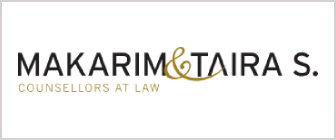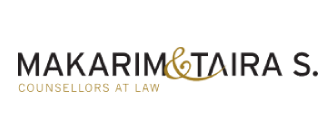The Financial Service Authority (Otoritas Jasa Keuangan – “OJK”) issued a new regulation for P2P Lending Providers that came into force on 4 July 2022, OJK Regulation No. 10/POJK.05/2022 on Technology-Based Collective Financing Services (“OJK Reg. 10/2022”). The issuance of this regulation is a response to the evergrowing P2P Lending business and replaces the previous OJK Regulation on P2P Lending activities, OJK Regulation No. 77/POJK.01/2016 on Technology-Based Fund Lending Services (“OJK Reg. 77/2016”).
OJK Reg. 10/2022 covers more regarding the management of P2P Lending Providers and has notable differences from OJK Reg. 77/2016. Below we provide an overview of OJK Reg. 10/2022 and its differences from its predecessor, including the transition period for existing P2P Lending Providers to comply (as applicable).
A. OJK Reg. 10/2022 Overview
Minimum Paid-up Capital and Equity
OJK Reg. 10/2022 imposes a new minimum paid-up capital requirement that has increased exponentially from OJK Reg. 77/2016. During their establishment, P2P Lending Providers have a minimum of paid-up capital of IDR25,000,000,000. In addition, OJK Reg. 10/2022 also sets the minimum equity requirement for P2P Lending Providers, ie. a minimum of IDR12,500,000,000.
The Licensing Requirements
Under OJK Reg. 10/2022, P2P Lending Providers must obtain a business license from the OJK (no more registration phase) and must be registered as an Electronic System Operator (“ESO”) in the Ministry of Communication and Informatics (“MOCI”) system. The ESO registration application must be submitted within 30 calendar days as of the issuance of the business license from the OJK and must be completed in accordance with MOCI Regulation No. 5 of 2020 on Private Sector Electronic System Operators. P2P Lending Providers may only engage in business upon obtaining a business license from the OJK and being registered as an ESO.
You can find our firm’s advisory regarding the general overview of ESO, including its registration procedures at this link: Advisory on New Regulations on ESO in the Private Sector.
Lock-up Period for Change of Shareholding Composition
Upon obtaining a business license from the OJK, P2P Lending Providers are barred from changing their shareholding composition if it would result in the addition of a new shareholder(s) or a change of controlling shareholder, for the following 3 years.
Sharia-based P2P Lending
OJK Reg. 10/2022 prohibits one P2P Lending Provider from providing both conventional and sharia-based lending. Additionally, OJK Reg. 10/2022 allows a party to be the controlling shareholder of a conventional P2P Lending Provider and a sharia-based P2P Lending Provider at the same time.
Single Presence Policy
The single presence policy is now introduced in OJK Reg. 10/2022. A party cannot now be the controlling shareholder of more than one conventional P2P Lending Provider or more than one sharia-based P2P Lending Provider. However, as explained above, it is possible for a party to be the controlling shareholder of a conventional P2P Lending Provider and a shariabased P2P Lending Provider.
Funding Limitation for Lenders
OJK Reg 10/2022 sets out new limitation on the funding by the lenders. Each lender and its affiliates now may only provide funds up to 25% of the final lending position at the end of each month. This limitation will be implemented gradually until January 2023.
The 25% rule however, does not apply to lenders that are financial service institutions under the supervision of OJK. As for the latter, each lender may provide up to 75% of the final lending position at the end of each month, subject to the regulations applicable to the relevant financial service institutions.
Fit and Proper test
The following main parties (including any changes to them) are subject to a fit and proper test
administered by the OJK:
a. the Controlling Shareholder;1
b. the Board of Directors (“BOD”);
c. the Board of Commissioners (“BOC”); and
d. the Sharia Supervisory Board (“DPS”).
The fit and proper test will be administered in accordance with OJK Regulation No. 27/POJK.03/2016 on Fit and Proper Tests for the Main Parties of Financial Service Institutions and its implementing regulation.
The BOD, BOC and DPS
Below are the requirements and prohibitions that apply to the BOD, BOC and DPS under OJK Reg. 10/2022.
| Position | Requirements | Prohibitions |
|---|---|---|
| BOD |
|
|
| BOC |
|
|
| DPS | Sharia-based P2P Lending Providers must have at least 1 DPS member that has a recommendation from the National Sharia Board. |
|
Corporate Actions that Require OJK Approval
Under OJK Reg. 10/2022, the following some corporate actions require approval from the OJK:
a. a change of ownership;2
b. a conversion from conventional P2P Lending to Sharia-based P2P Lending;
c. changes to the BOD, BOC and DPS;
d. an increment in the paid-up capital;
e. a merger or consolidation.
B. The Transition Period to Comply with OJK Reg. 10/2022
| Key Provisions | OJK Reg. 77/2016 | OJK Reg. 10/2022 | Transition Period to Comply with OJK Reg. 10/2022 |
|---|---|---|---|
| Minimum Paidup Capital | IDR1,000,000,000 when applying for the registration and IDR2,500,000,000 when applying for a license |
IDR25,000,000,000 |
The new minimum paid up capital requirement does not apply to a P2P a. already obtained license; The minimum paid up capital requirement for items b and c above are IDR2,500,000,000, which only applicable for P2P Lending Providers that submit the license application within 6 months as of 4 July 2022. |
| Minimum Equity |
Not Regulated. | Must at all times be IDR12,500,000,000. |
Must be realized in stages within 3 years as of 4 July 2022: a. a minimum of IDR2,500,000,000 in the first year; |
| License | Must be registered with the OJK and then obtain a license from the OJK. | Must obtain a business license from the OJK and be registered as an ESO. |
P2P Lending Provider that has returned the a. Does not change its controlling shareholder; and |
| Single Presence Policy |
Not Regulated. | A party may not be the controlling shareholder of more than one conventional or sharia P2P Lending Provider. |
Must be realized within 1 year as of 4 July 2022. |
| Sharia-Based P2P Lending |
Not Regulated. | Sharia-based lending may only be conducted by sharia-based P2P Lending Provider. |
If a P2P Lending Provider had a shariabased product or a sharia unit prior to the issuance of OJK Reg. 10/2022, it must cease the marketing of the sharia product and settle the remaining rights and obligations within 6 months of the issuance of the new regulation. |
| Funding Limitation for Lenders |
Not regulated. | Each lender (and its affiliates) may only provide funds up to 25% of the final lending position at the end of each month, unless the lender is a financial service institution under the supervision of OJK |
The 25% limitation for funds that may be a. Up to 80% in the 6th month; |
| Fit and Proper Test |
Not explicitly regulated. |
The following main parties a. the Controlling |
If after 4 July 2022, any change of composition or extension of the term of the existing main parties occurs, the relevant main parties, must undergo a fit and proper test. |
| BOD, BOC and DPS Requirements |
BOD & BOC DPS |
BOD & BOC: At least 1 BOC member If there is at least 25% of DPS |
The required BOD and BOC composition must be complied with within 1 year as of 4 July 2022. The prohibition on being a BOD member in more than 3 companies must be complied with within 6 months as of 4 July 2022. |
In the near future, we expect that the OJK will issue implementing regulations on the technicalities of the provisions of OJK Reg. 10/2022.
1 Controlling shareholder is define as an entity that holds 25% or more of shares at P2P Lending Provider or holds less than 25% but can prove its control, whether directly or indirectly, over the P2P Lending Provider.
2 A change of ownership includes a change of i) a private company shareholder; ii) a private company indirect
shareholder; iii) a public company controlling shareholder; or iv) a public company indirect controlling shareholder.



